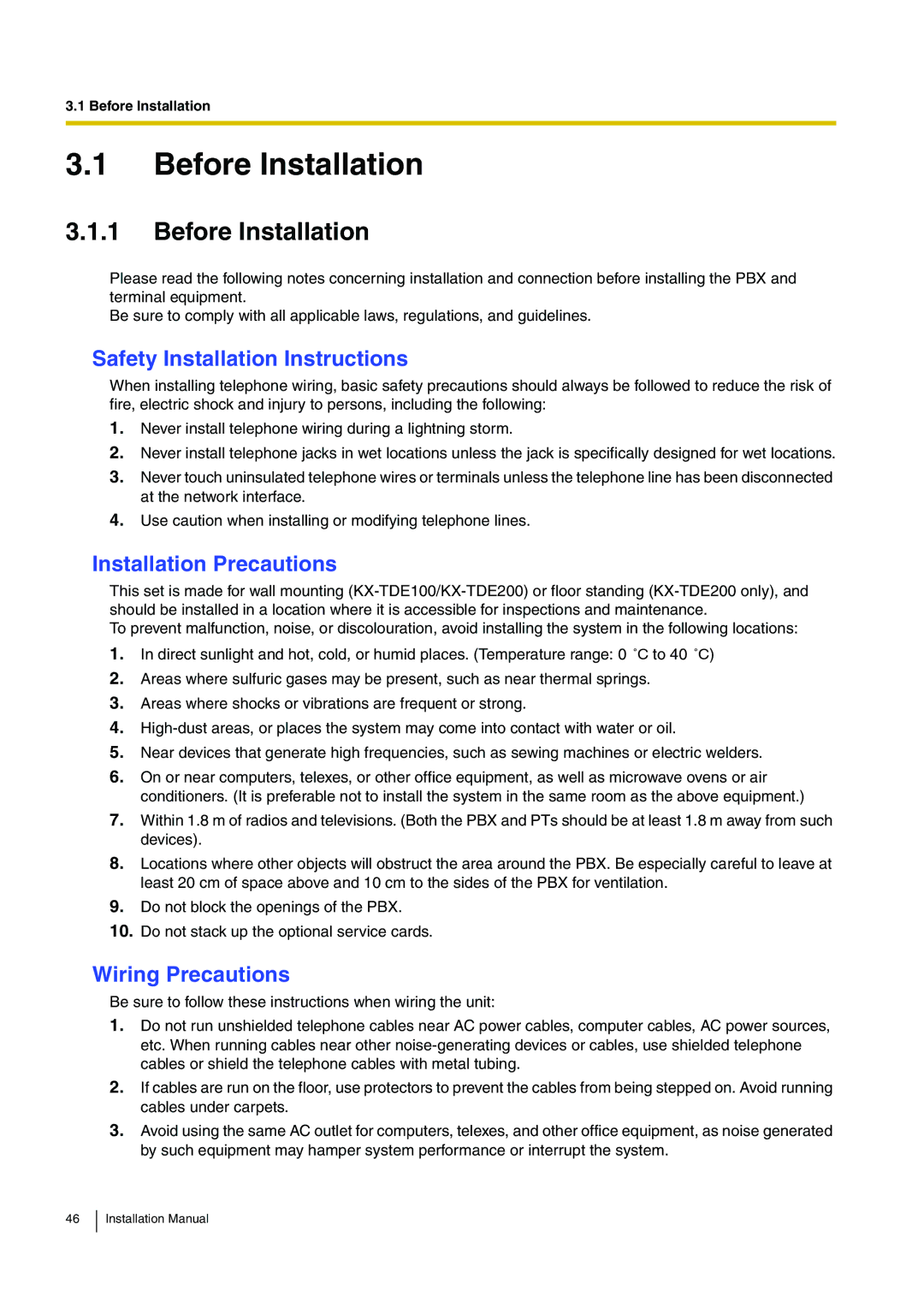
3.1 Before Installation
3.1Before Installation
3.1.1Before Installation
Please read the following notes concerning installation and connection before installing the PBX and terminal equipment.
Be sure to comply with all applicable laws, regulations, and guidelines.
Safety Installation Instructions
When installing telephone wiring, basic safety precautions should always be followed to reduce the risk of fire, electric shock and injury to persons, including the following:
1.Never install telephone wiring during a lightning storm.
2.Never install telephone jacks in wet locations unless the jack is specifically designed for wet locations.
3.Never touch uninsulated telephone wires or terminals unless the telephone line has been disconnected at the network interface.
4.Use caution when installing or modifying telephone lines.
Installation Precautions
This set is made for wall mounting
To prevent malfunction, noise, or discolouration, avoid installing the system in the following locations:
1.In direct sunlight and hot, cold, or humid places. (Temperature range: 0 ˚C to 40 ˚C)
2.Areas where sulfuric gases may be present, such as near thermal springs.
3.Areas where shocks or vibrations are frequent or strong.
4.
5.Near devices that generate high frequencies, such as sewing machines or electric welders.
6.On or near computers, telexes, or other office equipment, as well as microwave ovens or air conditioners. (It is preferable not to install the system in the same room as the above equipment.)
7.Within 1.8 m of radios and televisions. (Both the PBX and PTs should be at least 1.8 m away from such devices).
8.Locations where other objects will obstruct the area around the PBX. Be especially careful to leave at least 20 cm of space above and 10 cm to the sides of the PBX for ventilation.
9.Do not block the openings of the PBX.
10.Do not stack up the optional service cards.
Wiring Precautions
Be sure to follow these instructions when wiring the unit:
1.Do not run unshielded telephone cables near AC power cables, computer cables, AC power sources, etc. When running cables near other
2.If cables are run on the floor, use protectors to prevent the cables from being stepped on. Avoid running cables under carpets.
3.Avoid using the same AC outlet for computers, telexes, and other office equipment, as noise generated by such equipment may hamper system performance or interrupt the system.
46
